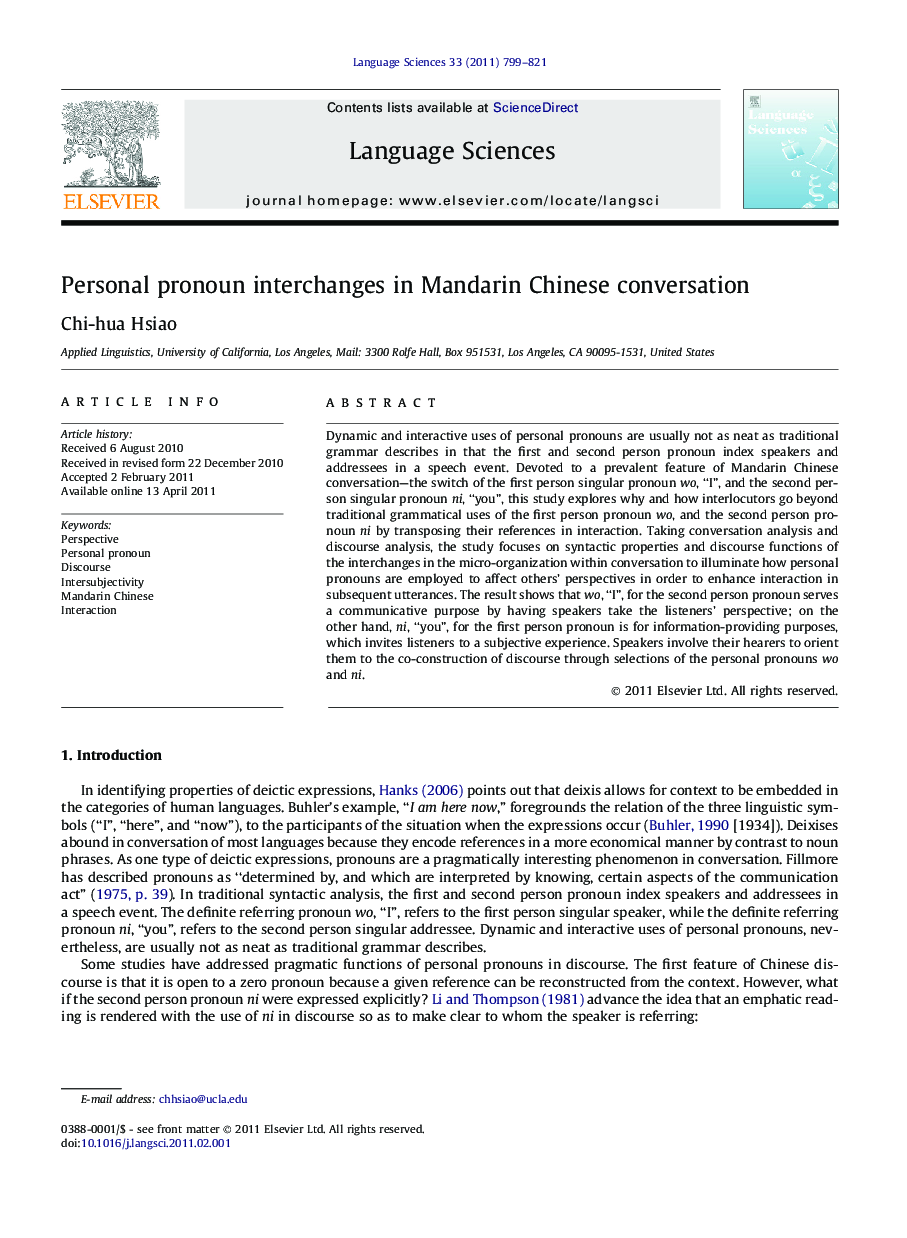| Article ID | Journal | Published Year | Pages | File Type |
|---|---|---|---|---|
| 1103468 | Language Sciences | 2011 | 23 Pages |
Dynamic and interactive uses of personal pronouns are usually not as neat as traditional grammar describes in that the first and second person pronoun index speakers and addressees in a speech event. Devoted to a prevalent feature of Mandarin Chinese conversation—the switch of the first person singular pronoun wo, “I”, and the second person singular pronoun ni, “you”, this study explores why and how interlocutors go beyond traditional grammatical uses of the first person pronoun wo, and the second person pronoun ni by transposing their references in interaction. Taking conversation analysis and discourse analysis, the study focuses on syntactic properties and discourse functions of the interchanges in the micro-organization within conversation to illuminate how personal pronouns are employed to affect others’ perspectives in order to enhance interaction in subsequent utterances. The result shows that wo, “I”, for the second person pronoun serves a communicative purpose by having speakers take the listeners’ perspective; on the other hand, ni, “you”, for the first person pronoun is for information-providing purposes, which invites listeners to a subjective experience. Speakers involve their hearers to orient them to the co-construction of discourse through selections of the personal pronouns wo and ni.
